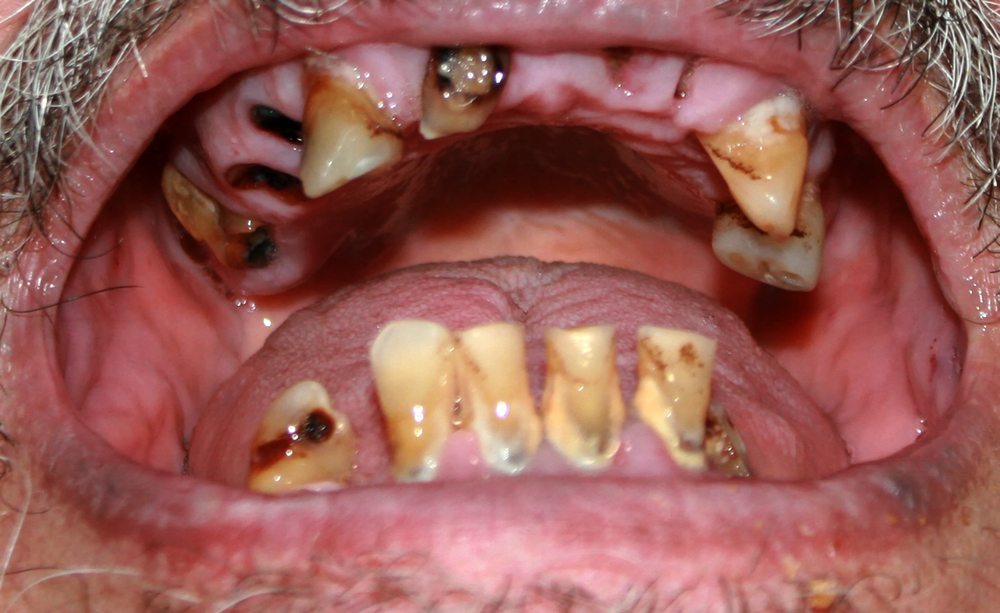CAN DRUG USE RUIN YOUR TEETH?
With so many people currently addicted to drugs and as many as three million new users each year there is bound to
be an upsurge in periodontal disease as well. It’s not news that people with drug addictions would be more likely to
have periodontal disease and tooth decay than the general population. We did some digging and saw first hand the
impact drug use has on oral health.

Meth Mouth
COCAINE AND METH USE
There is a direct physiological impact on oral health from drug use.
In particular users of cocaine and meth amphetamine tend to have
more damage to their teeth and gums. Periodontists and Dentists
refer to it as cocaine canines or meth mouth. It can cause dry mouth; it increases the urge for snacking, clenching
and grinding teeth. Additionally, applying cocaine directly to the teeth and gums causes chemical erosion and the
chemicals in meth amphetamines are capable of stripping the enamel from the tooth. Gum infection and tooth loss
is common and may happen after only a few months of using cocaine and as early as a few weeks of using meth.
UNHEALTHY LIFE CHOICES
Not only is it the drugs that are damaging to the teeth and gums but the lifestyle of drug users also impacts the
mouth. For example, high sugar diets and malnutrition along with poor oral hygiene and lack of regular professional
dental care are major contributors. Add in a high tolerance for painkillers and anesthetics and you have the perfect
storm for periodontal disease.
Poor oral health has major consequences on your quality of life and general health as we’ve blogged about previously.
In addition to losing the aesthetics of good teeth and the self-esteem associated with them, you are also losing the
functionality of your teeth. This keeps you from being able to eat and chew nutritional foods leading to malnutrition.
THE IMPACT OF DRUG USE ON A PATIENT
Depending on whether a patient uses uppers or downers can impact their treatment. If a patient has used uppers,
like cocaine or methamphetamine or ecstasy, and the doctor needs to use a local anesthetic with a vasoconstrictor
(which constricts the veins), it can raise the blood pressure and you run the risk of having a stroke. Patients that
have marijuana in their system may make sedation more difficult because it makes the oral sedation more powerful
which can be concerning. Also, patients on drugs can be more forgetful which means they may not remember post
treatment instructions.
TALK WITH YOUR DOCTOR
In the end, being honest with your dentist or doctor about your drug use can help avoid potentially life-threatening
situations. In this country there are strong HIPPA laws in place to protect your private and sensitive information.
Feel confident in speaking openly with medical professionals. Your life may depend on it.
Your health matters to us. If you have any questions concerning this post, call us at (248) 357-3100 today. We’re always happy to hear from our awesome patients!
The content on this blog is not intended to be a substitute for professional medical advice, diagnosis, or treatment. Always seek the advice of qualified health providers with questions you may have regarding drug use and your teeth.
